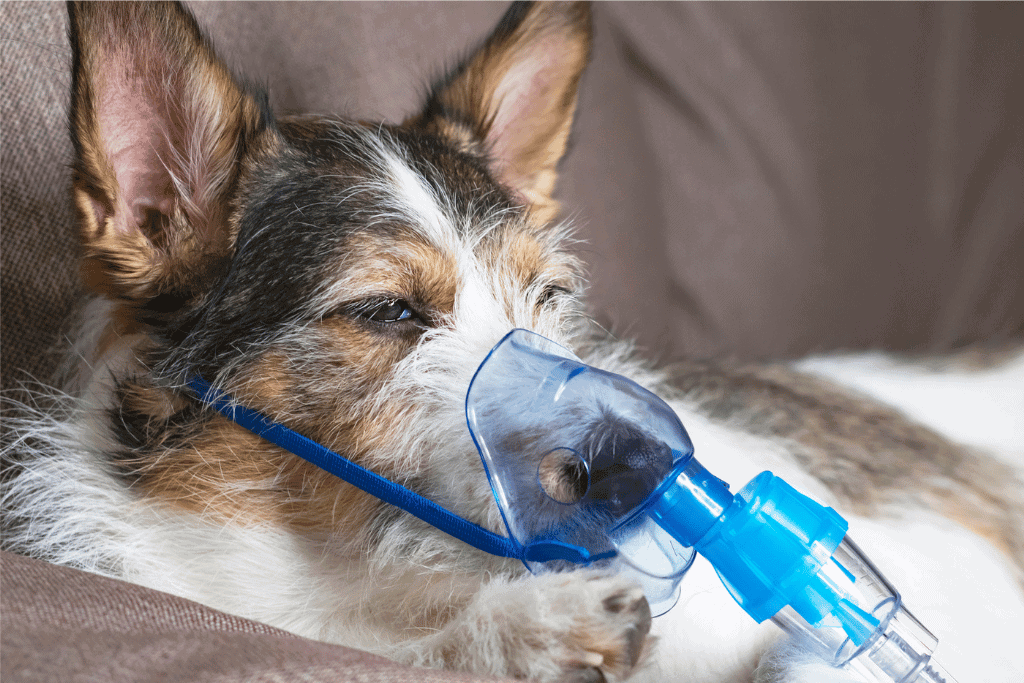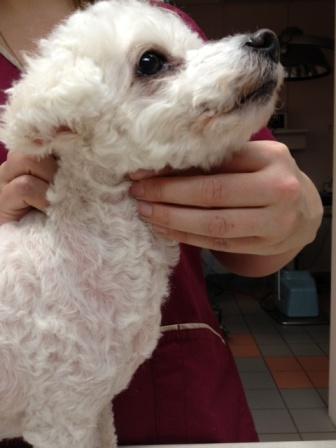Picture this: your dog, usually full of energy, is suddenly coughing and wheezing. It’s not just a cold; it could be bronchitis. This condition, affecting the airways, can make breathing difficult for our furry mates. Understanding bronchitis in dogs is crucial for any pet owner. It’s not just about recognising the symptoms, like persistent coughing and lethargy, but also knowing the causes and treatment options available. This article aims to guide you through the ins and outs of canine bronchitis, helping you spot the signs early and seek the right care. From environmental factors to infections, we’ll cover what you need to know to keep your dog healthy and happy.
Causes and Risk Factors of Bronchitis in Dogs

Common Causes of Bronchitis in Dogs
Bronchitis in dogs often stems from infections, whether viral or bacterial. These pesky invaders can irritate the airways, leading to inflammation. But it’s not just germs that can cause trouble. Allergens like pollen, dust, and smoke are also culprits, especially in dogs with sensitive respiratory systems. Even prolonged exposure to cold or damp environments can trigger bronchitis.
Environmental and Genetic Risk Factors
Environmental factors play a big role in a dog’s respiratory health. Dogs living in areas with high pollution levels or those exposed to second-hand smoke are at a higher risk. Genetics can also be a factor. Some dogs are just more prone to respiratory issues due to their genetic makeup.
Breeds More Susceptible to Bronchitis
Certain breeds are more susceptible to bronchitis. Small breeds like Poodles and Yorkshire Terriers often find themselves at the top of the list. Brachycephalic breeds, such as Bulldogs and Pugs, with their short noses, can also be more prone to respiratory problems, including bronchitis.
Symptoms of Bronchitis in Dogs

Typical Signs and Symptoms
When it comes to bronchitis in dogs, the signs can be quite telling. Persistent coughing is often the first clue. It might sound dry and hacking, or sometimes more like a wet cough. Wheezing is another common symptom, as the airways become inflamed and narrowed. You might notice your dog having difficulty breathing, especially after exercise or excitement. This can be distressing to see, but recognising these signs early is key.
How to Differentiate from Other Respiratory Conditions
Distinguishing bronchitis from other respiratory issues can be tricky. Conditions like kennel cough or pneumonia might present similar symptoms. However, bronchitis tends to have a more chronic nature, with symptoms persisting over weeks. Kennel cough often comes with a honking sound, while pneumonia might include fever and lethargy. If you’re unsure, a vet visit is always a good idea to get a proper diagnosis.
Diagnosis and Importance of Early Detection
Veterinary Examination and Diagnostic Tests
When your dog shows signs of bronchitis, a trip to the vet is essential. The vet will start with a thorough examination, listening to your dog’s lungs and checking for any unusual sounds. They might recommend diagnostic tests like X-rays or blood tests to get a clearer picture of what’s going on. These tests help rule out other conditions and confirm if it’s indeed bronchitis.
Importance of Early Detection and Accurate Diagnosis
Catching bronchitis early can make a world of difference. The sooner it’s diagnosed, the quicker you can start treatment, which can prevent the condition from worsening. An accurate diagnosis ensures your dog gets the right care, tailored to their specific needs. This not only helps in managing symptoms but also improves their overall quality of life. So, don’t wait if you notice any signs; early action is key.
Treatment Options for Bronchitis in Dogs
Medications Commonly Prescribed
When it comes to treating bronchitis in dogs, medications are often the first line of defence. Vets might prescribe bronchodilators to help open up the airways, making it easier for your dog to breathe. Anti-inflammatory drugs can also be used to reduce swelling in the airways. In cases where a bacterial infection is present, antibiotics may be necessary to clear it up.
Home Care and Lifestyle Adjustments
Beyond medications, there are several home care strategies that can make a big difference. Keeping your dog in a smoke-free environment is crucial. Regular exercise is important, but it should be moderate to avoid overexertion. A humidifier can help keep the air moist, easing your dog’s breathing. Also, ensure your dog has a comfortable, warm place to rest, away from cold drafts.
Alternative Therapies and Their Effectiveness
Some pet owners explore alternative therapies like acupuncture or herbal remedies. While these can offer relief, it’s important to consult with your vet before trying them. Acupuncture has shown promise in reducing inflammation and improving respiratory function in some dogs. However, the effectiveness of herbal treatments can vary, so professional guidance is key.
Prevention Strategies for Bronchitis in Dogs

Environmental Changes
Creating a healthy environment is key to preventing bronchitis in dogs. Start by ensuring your home is smoke-free. Second-hand smoke can irritate your dog’s airways, making them more susceptible to respiratory issues. Consider using air purifiers to reduce allergens like dust and pollen, especially if your dog has a sensitive respiratory system. Keeping your home well-ventilated can also help maintain good air quality.
Regular Veterinary Check-Ups
Regular vet visits are crucial for early detection and prevention of bronchitis. These check-ups allow your vet to monitor your dog’s respiratory health and catch any issues before they become serious. Your vet can also provide tailored advice on vaccinations and preventive care, reducing the risk of infections that could lead to bronchitis.
Additional Tips
- Ensure your dog gets regular exercise to maintain a healthy weight, which supports respiratory health.
- Provide a balanced diet rich in nutrients to boost their immune system.
- Keep your dog warm and dry, especially during colder months, to prevent respiratory stress.
When to See a Vet

Warning Signs That Require Immediate Veterinary Attention
If your dog is showing signs of bronchitis, knowing when to see a vet is crucial. Persistent coughing that doesn’t improve, wheezing, or any difficulty breathing should be your cue to make an appointment. If your dog seems unusually tired or is struggling to catch their breath, it’s time to act. These symptoms can escalate quickly, so don’t wait too long.
Routine Monitoring and Follow-Up Care
Once your dog has been diagnosed with bronchitis, regular check-ups are important. These visits help monitor their progress and adjust treatment if needed. Your vet might suggest follow-up tests to ensure the condition is under control. Keeping a close eye on your dog’s symptoms and reporting any changes can make a big difference in their recovery. Consistent care and attention are key to managing bronchitis effectively.
Final Thoughts
Bronchitis in dogs requires prompt attention and informed care. Recognizing the symptoms early and understanding the causes can significantly improve your dog’s quality of life. By addressing environmental factors and seeking timely veterinary intervention, pet owners can effectively manage this condition. Remember, a proactive approach not only alleviates your dog’s discomfort but also strengthens the bond you share. Stay vigilant and consult your vet regularly to ensure your furry friend remains healthy and happy.
